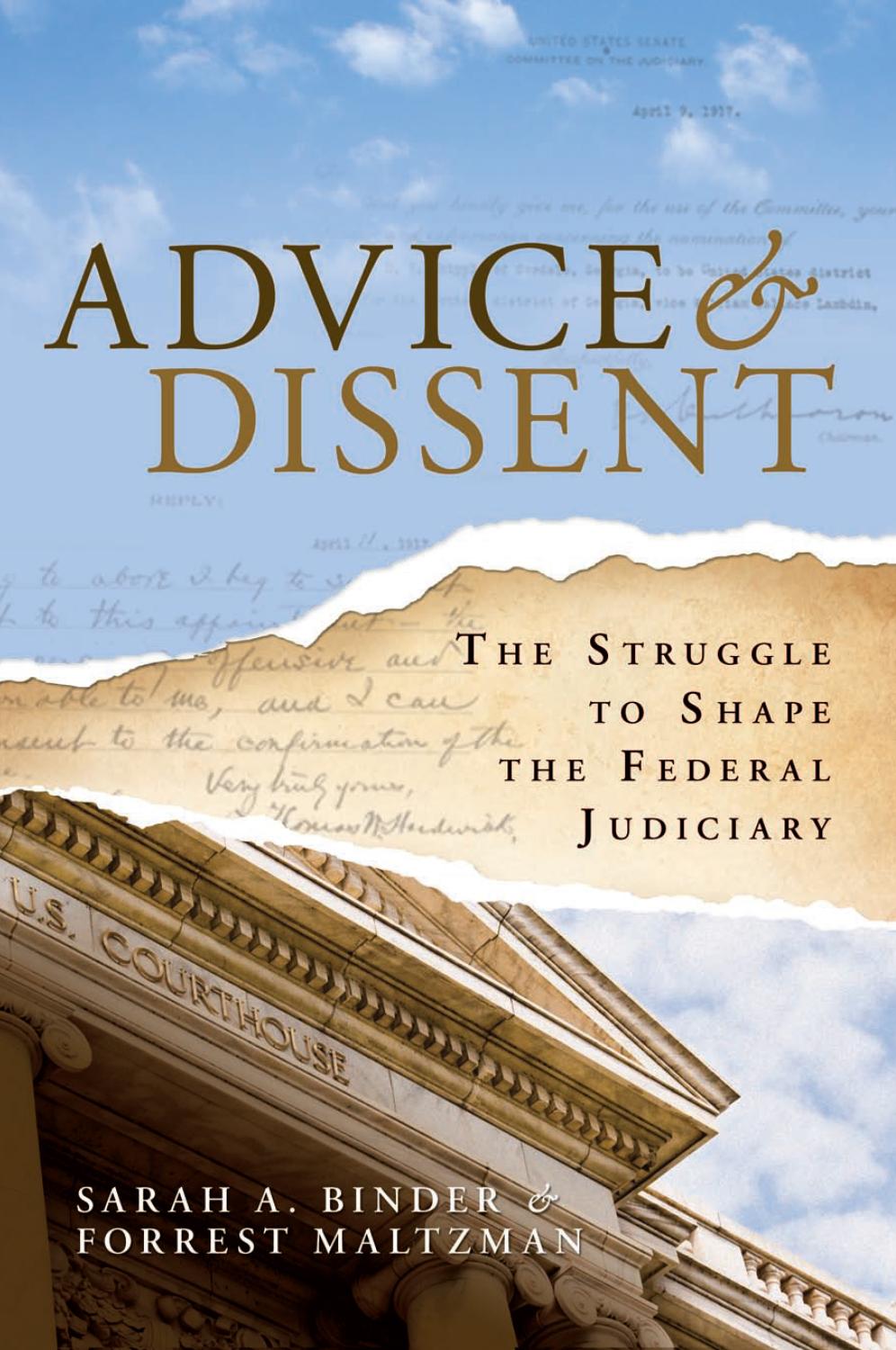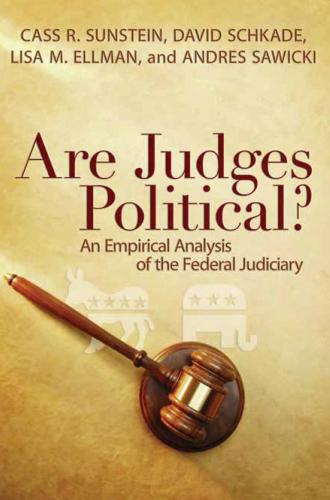


Book
For better or worse, federal judges in the United States today are asked to resolve some of the nation’s most important and contentious public policy issues. Although some hold onto...
For better or worse, federal judges in the United States today are asked to resolve some of the nation’s most important and contentious public policy issues. Although some hold onto the notion that federal judges are simply neutral arbiters of complex legal questions, the justices who serve on the Supreme Court and the judges who sit on the lower federal bench are in fact crafters of public law. In recent years, for example, the Supreme Court has bolstered the rights of immigrants, endorsed the constitutionality of school vouchers, struck down Washington D.C.’s blanket ban on handgun ownership, and most famously, determined the outcome of the 2000 presidential election. The judiciary now is an active partner in the making of public policy.
Judicial selection has been contentious at numerous junctures in American history, but seldom has it seemed more acrimonious and dysfunctional than in recent years. Fewer than half of recent appellate court nominees have been confirmed, and at times over the past few years, over ten percent of the federal bench has sat vacant. Many nominations linger in the Senate for months, even years. All the while, the judiciary’s caseload grows. Advice and Dissent explores the state of the nation’s federal judicial selection system—a process beset by deepening partisan polarization, obstructionism, and deterioration of the practice of advice and consent.
Focusing on the selection of judges for the U.S. Courts of Appeals and the U.S. District Courts, the true workhorses of the federal bench, Sarah A. Binder and Forrest Maltzman reconstruct the history and contemporary practice of advice and consent. They identify the political and institutional causes of conflict over judicial selection over the past sixty years, as well as the consequences of such battles over court appointments. Advice and Dissent offers proposals for reforming the institutions of judicial selection, advocating pragmatic reforms that seek to harness the incentives of presidents and senators together. How well lawmakers confront the breakdown in advice and consent will have lasting consequences for the institutional capacity of the U.S. Senate and for the performance of the federal bench.
Related Books

Elaine C. Kamarck
July 26, 2016

Sarah A. Binder, Steven S. Smith
November 1, 1996

Cass R. Sunstein, David Schkade, Lisa M. Ellman, Andres Sawicki
June 8, 2006
Authors
Sarah A. Binder is a senior fellow in Governance Studies at the Brookings Institution and a professor of political science at George Washington University. Her most recent book is Stalemate: Causes and Consequences of Legislative Gridlock (Brookings).
Forrest Maltzman is a professor of political science at George Washington University. He is the coauthor most recently of Crafting Law on the Supreme Court: The Collegial Game (Cambridge).